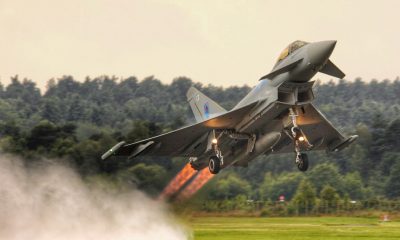On 16 December, President Vladimir Putin ordered the abolition of Russia’s free trade regime with Ukraine. He had been threatening to do so since 2011 as a response to the harm Russia claimed it would suffer from the implementation of Deep and Comprehensive Free Trade Agreement (DCFTA) between Ukraine and the EU. To avert this scenario, last year the EU and Ukraine agreed to suspend the DCFTA until December 2015 and initiate trilateral negotiations.
In essence, Russia’s objections to Ukraine’s DCFTA are political rather than economic. The allegations of economic harm resulting from the DCFTA remain poorly justified and spurious. Trade problems lend themselves to resolution through, for example, the application of the WTO’s rules of origin requirements. Yet Russia showed no interest in applying such rules and now seems to be terminating Ukraine’s participation in the the 2011 Commonwealth of Independent States (CIS) FTA in retaliation for Ukraine’s pursuit of an FTA with the EU.
No solutions
Russia is essentially objecting to the EU’s integration offer to the small group of willing post-Soviet countries (Ukraine, Georgia and Moldova) which it perceives as encroaching on its rightful territory. Russia’s argument that Ukraine’s CIS undertakings are violated by the Association Agreement is weak. Indeed, the DCFTA was specifically crafted to allow Ukraine to participate in multiple FTAs.
The political rather than economic basis for Russia’s concerns was exposed during negotiations, when far-reaching demands for a radical revision of the DCFTA were tabled. Involving Russia in discussions on the EU-Ukraine bilateral agreement proved a serious miscalculation as it provided Russia with a platform from which to block progress. In the latest round of negotiations this month Ukrainian foreign minister, Pavlo Klimkin, anomenat the Russian proposals ‘absurd’. In turn, Alexei Ulyukayev, Russia’s economy minister, continues to insist that the DCFTA was ‘absolutely unacceptable’ to Russia.The DCFTA will come into effect on 1 January 2016, the date on which Russia will raise tariffs for Ukraine’s exports.
Against this background, it is puzzling that some officials in the EU and Germany insist that the Kremlin’s ‘legitimate’ concerns need to be taken on board. The German Ministry of Foreign Affairs, for example, has suggested revising food safety standards in the DCFTA to satisfy Russia, which wants Ukraine to retain what in part are outdated, lower standards. It is unlikely that flexibility on food safety standards will pacify Russia. From Moscow’s view, trade arrangements are not a regulatory but geopolitical issue.
la recent proposta to engage in a dialogue with the Eurasian Economic Union, suggested by President of the European Commission Jean-Claude Juncker, comes as a misguided attempt to find another technical solution to what is essentially a problem of different values with Russia – crystalized in its objection to the right of the post-Soviet countries to pursue economic integration with the EU. The EU has yet to devise a comprehensive response to the normative challenge posed by Russia
Implicacions per a Ucraïna
While the negotiations continued, trade volumes between Russia and Ukraine plummeted as a result of sanctions and embargoes. Ukraine’s exports to Russia have more than halved since 2012. In response, Ukraine is diversifying trade flows even though the process is slow, painful and costly, particularly alongside the general economic decline and war with Russian-backed separatists in the east. Some sectors, such as the machine building industry (with its high exposure to the Russian market), have been hit particularly hard whereas others, such as food production, are adapting faster, especially with increased exports to China. In the last year, Ukraine’s trade and energy dependency on Russia has declined dramatically, thereby reducing Russian leverage over Ukraine.
The negotiations have failed to deliver a solution because Russia’s objections are not about technical issues. Indeed the attempt by the EU to engage in such negotiations with Russia and the belief in the EU that technical solutions could overcome geopolitical contestation looks ever more misplaced.





































